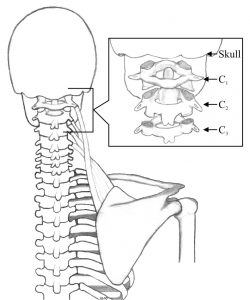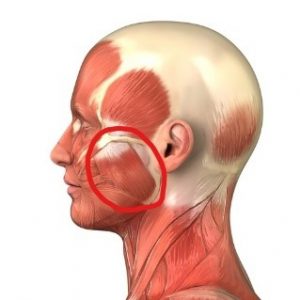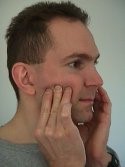It’s Time For The Beach
 This is a perfect time to go to the beach – August is hot and humid, and the water feels so refreshing. Of course, we now need to socially distance ourselves from each other, but for those of us in Florida that is possible when we have so many beautiful beaches close to our homes.
This is a perfect time to go to the beach – August is hot and humid, and the water feels so refreshing. Of course, we now need to socially distance ourselves from each other, but for those of us in Florida that is possible when we have so many beautiful beaches close to our homes.
Most of us are sticking close to home, and summer sure isn’t what it has been in years past. The baseball season was on – then off – and as of right now, who knows! Most of the people I know are getting through this okay, I hope you are too!
Which Muscles Are Affected By Stress?
We are living in stressful times, and chronic stress can cause your muscles to tighten. When that happens, it can lead to pain in unexpected places. When you visit your doctor, they may recommend drugs or aggressive treatments.
Unfortunately, many doctors are unaware tight muscles can be the real cause of your pain. They don’t know that there are simple treatments that can release your tight muscles and relieve the pain – without resorting to drugs.
This week I will address the top 3 muscles that are affected by chronic stress and how to treat those muscles when they cause you pain.
 Levator Scapulae: This is, in my opinion, the #1 muscle that gets involved when we are under stress. The nickname for the Levator Scapulae is “the shrug muscle” because when it contracts normally you lift your shoulders up….you shrug.
Levator Scapulae: This is, in my opinion, the #1 muscle that gets involved when we are under stress. The nickname for the Levator Scapulae is “the shrug muscle” because when it contracts normally you lift your shoulders up….you shrug.
The problem is, the muscle originates on your first four cervical vertebrae, and inserts into your shoulder blade. When you are under stress it is common for your shoulders to lift up. The muscle is held tightly, and a phenomenon called “muscle memory” keeps the muscle in the shortened position. Once the levator scapulae is “stuck” in a shortened position, when you either bend your neck to the side (bringing your ear closer to your shoulder), or you lift something heavy with your arm, pulling your shoulder down, it pulls on your cervical vertebrae.
This causes your cervical vertebrae to move and puts pressure on your spinal cord right at the base of your brain. The Levator Scapulae has been proven, in my clinical practice, to be the #1 reason for severe headaches. When it gets tight it will pull the insertions at your neck and pull them to the side and down. This causes the bones to press into your spinal cord, right at the base of your brain, and you get a severe headache!
Last month I shared self-treatment techniques to release the tightness in your Levator Scapulae muscles and relieve your tension headaches. If you are suffering from tension headaches, these techniques can work wonders.
Intercostals: The Intercostal muscles are between each rib. When you breath in, they expand, and when they contract, you breath out. The problem is, when you are under stress you may hold your breath longer than normal, and muscle memory sets in, and they stay in the shortened position.
As this happens you lose the ability to take a good, deep breath. This lessens the amount of oxygen that is in your blood and that goes out to your cells. This can cause problems all over your body.
The solution to this problem is deep breathing exercises. A friend of mine, Tara Clancy, is an expert on breathing and how it affects your entire body. You can check her out at http://www.o2tara.org.
 Masseter: Do you clench your teeth when you are under stress? The muscle that causes you to clench your teeth is called the masseter muscle. If you put your fingertips onto your cheeks, pressing into your back teeth you are on your masseter muscle. Clench your teeth, you will feel the muscle bulge as it contracts.
Masseter: Do you clench your teeth when you are under stress? The muscle that causes you to clench your teeth is called the masseter muscle. If you put your fingertips onto your cheeks, pressing into your back teeth you are on your masseter muscle. Clench your teeth, you will feel the muscle bulge as it contracts.
The masseter muscle (circled on graphic) is the muscle that contracts to enable you to chew your food. Normally, as you chew the muscle shortens, and then lengthens as you put more food into your mouth. However, if you are under chronic stress, and your teeth stay clenched, your masseter will shorten from muscle memory and put a strain on your jaw joint. This is the cause of a condition called TMJ.
TMJ is a condition where your jawbone rubs, or “clicks,” over the bone that is just in front of your ear. It is painful, and over time it will damage the bones. When you are under stress and constantly clenching your teeth, you are shortening your masseter muscle. The now-shorter muscle prevents you from opening your jaw completely, for example, when you yawn. As you are trying to yawn your jaw flips over the bone, and it hurts.
Self-Treatment For TMJ
Several years ago, I had a client who had such tight masseter muscles that a dental surgeon was going to sever them so she could open her mouth. This is a terrible solution because it would mean her mouth would hang open for the rest of her life. Fortunately for this client she had to get medical approval before she could have the surgery. When Dr. Cohen (the doctor I worked with) felt her masseter muscles, he refused to sign the permission form. He told her that she had to see me first, and fortunately I was there at the time. It took just 30 minutes for me to release the spasms and teach her how to do the treatment. At the end of the session she was pressing into both masseter muscles and opening her mouth. She did it easily and without pain! She started to cry because she came within one day of having this unnecessary surgery. Her life was changed by just a simple self-treatment!
 Place your fingers as shown in the picture to the left. Clench your teeth so you can feel the muscles bulge.
Place your fingers as shown in the picture to the left. Clench your teeth so you can feel the muscles bulge.
Apply deep pressure on just one side for 5 seconds. Then release that pressure and apply deep pressure to the opposite side for 5 seconds. Go back and forth until it doesn’t hurt anymore. Then find a different “hot spot,” and repeat. Continue doing this until you can’t find any more tender points on your muscle and jaw.
To stretch the masseter muscle just press deeply into the original point on the muscle and slowly open your mouth wide.
Wishing you well,
Julie Donnelly
These statements have not been evaluated by the Food and Drug Administration. This information is not intended to diagnose, treat, cure or prevent any disease.
